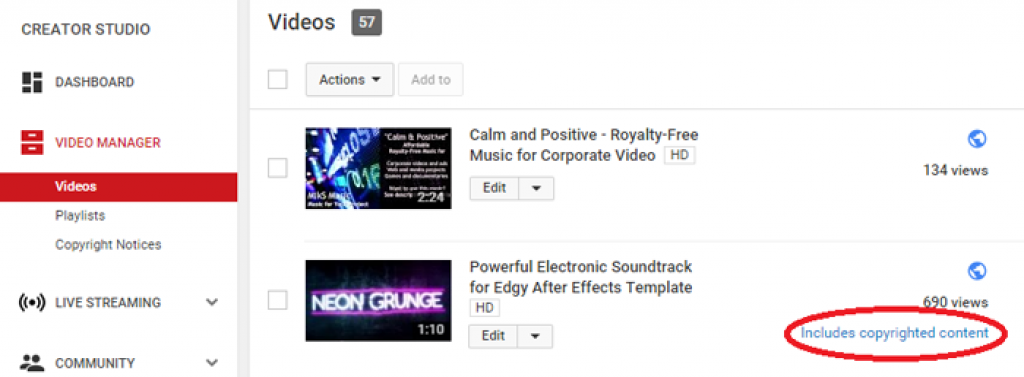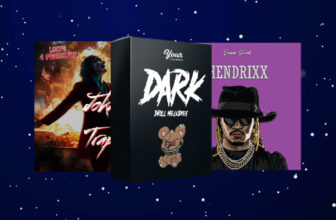Are melody loops copyright free?
When you purchase a sample pack or a melody loop kit from a third-party supplier, like Your Local Musician it will most likely will contain a certificate of use inside their downloadable zip file stating on what terms you can use the samples you have purchased or this will be stated in the terms and conditions of the website, or even the product page of the sample pack.
For us, any sample pack purchased from our store is 100% copyright-free, meaning that you can use them in any manner you wish other than reselling the sounds in your own sample pack.
If you have purchased samples from shady sauces on the internet, producers can sometimes be roped into agreements that they were either not aware of (mainly because they did read the appropriate documentation) or in a situation that they don’t know how to navigate through.
Firstly let’s take a look a look at what a licensing agreement is.
What Is a Licensing Agreement?
A licensing agreement, or license agreement, is a deal between the owner of a patent, brand, or trademark and someone who wants to use the patented or trademarked goods and services. The license grants permission to the licensee and includes stipulations. The licensee must honor these guidelines. One of the rules in the licensing agreement is usually a financial arrangement to pay for use of the license.
Let’s take a look at some of the terms you can find in an extra unordinary licensing agreement from sample pack companies.
1. Crediting the sample pack creator in your song credits.
If this is included, in any licensing agreement for a sample pack that you have purchased, what you will have to do is give credit to the sample pack creator in your song credits on all streaming platforms and physical copies as either a session musician, executive producer or songwriter.
Through this method, the creator could claim royalties at an agreed percentage.
2. You can’t monetize on YouTube.
Some sample pack providers have been known to upload their samples to YouTube’s Content ID system, this means that if you upload your song to YouTube, it will be atomically flagged and 100% of the ad revenue generated will go to the creator of the sample.
When you log in to your YouTube account it will look something like this if you have had a claim made against your video.

3. Revenue Split through your aggregator
Lastly, one of the third most common, stipulations you can find, is that the sample creator might want you to split streaming revenue with them via your aggregator, this can be achieved through services like Distrokid’s Teams Feature.
Most agreements that state this will typically ask for splits such as 70% you, 30% them, or a complete 50/50 split, meaning that you will give away a large percentage of the revenue you make to someone that you have never even met.
Whilst I agree with fair business, from a sample pack provider’s perspective, I do not agree with this way of treating customers, with Your Local Musician is 100% royalty-free meaning that once you have purchased a sample, you will not hear from us again.
We encourage our customers to monetize their creations in as many places as possible, it is our jobs as sound designers to provide a foundational layer for you to make music with, what you do with our samples is entirely up to you, this way you will retain 100% creative control over what you do with our samples.
Always remember to read your licensing agreements and just have fun making music.
Should I give the sample creator and producer splits?
This is entirely based on your situation and relationship with the people that have helped contribute to the song that has been created.
Have you hooked up with a producer/beat maker locally or remotely and built a great working relationship?
If so, I would then split a percentage with the producer in order to maintain balance in the arrangement.
What if the producer used a sample?
If the producer used a sample to produce the beat, that’s fine, but it will again depend on what is laid out in the licensing agreement, if there is a stipulation that mentions royalty-splits, you should have an arrangement with your producer to talk about such issues before working on and releasing a song together.
What if there is nothing mentioned in the licensing agreement
If nothing regarding royalty-splits is mentioned in the licensing agreement, you are free to put the song out using the sample without paying the sample creator any additional revenue.
However this all does depend heavily on your situation, you may have got the sample from a producer via DMs on social media, if so you’ll have to agree together what the terms of the relationship are.
My personal take is, pay the producer outright for the sample, only grant royalty-split if you know that the sample creator will assist in promoting the song.
If you’re the only one promoting the song, it’s my opinion that the sample creator would not be entitled to any royalty splits.
With 17 Years music production experience, George Matthews is the CEO of Your Local Musician, he also makes music under the name Grimmm and releases Lo-fi music.







